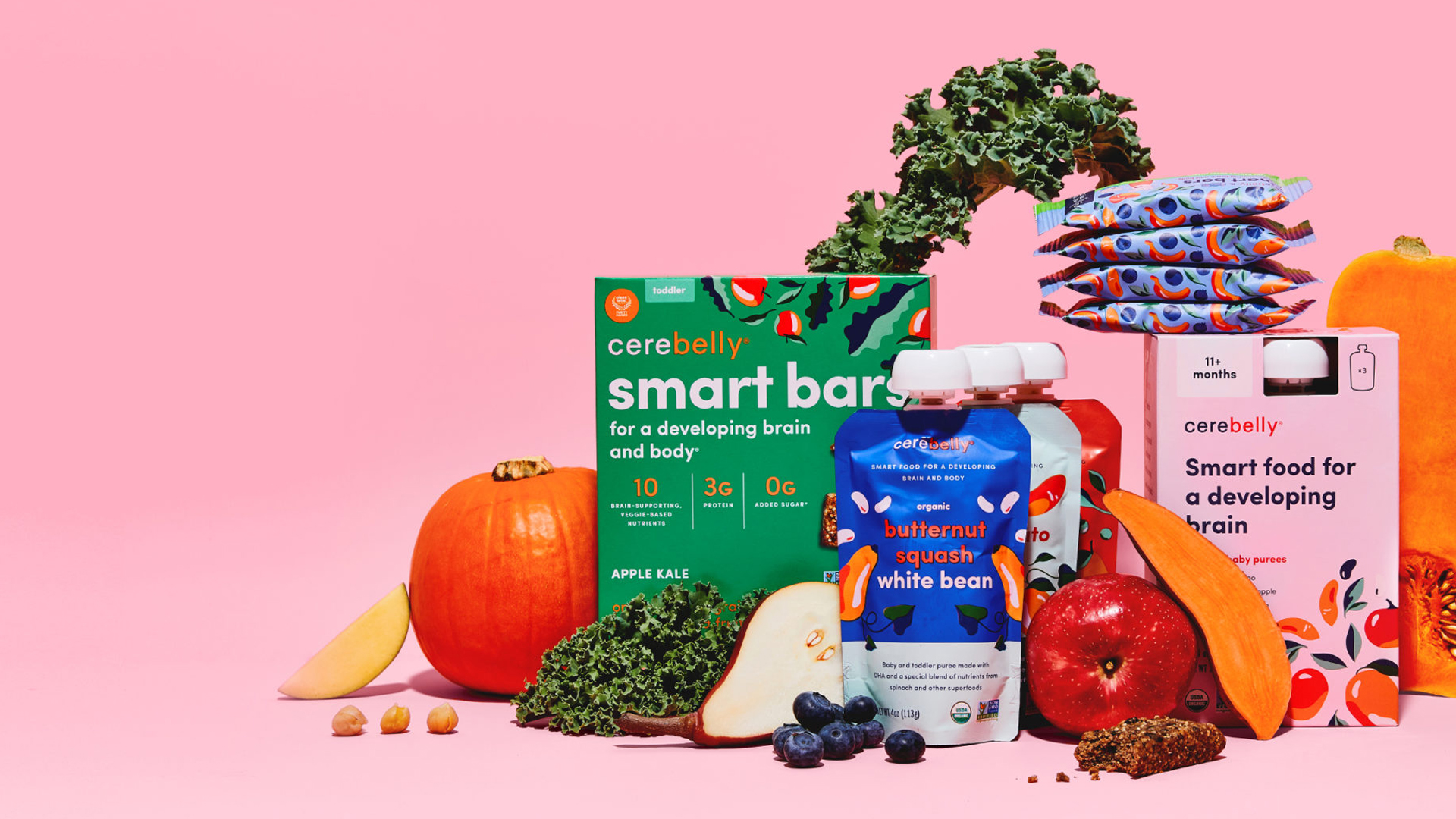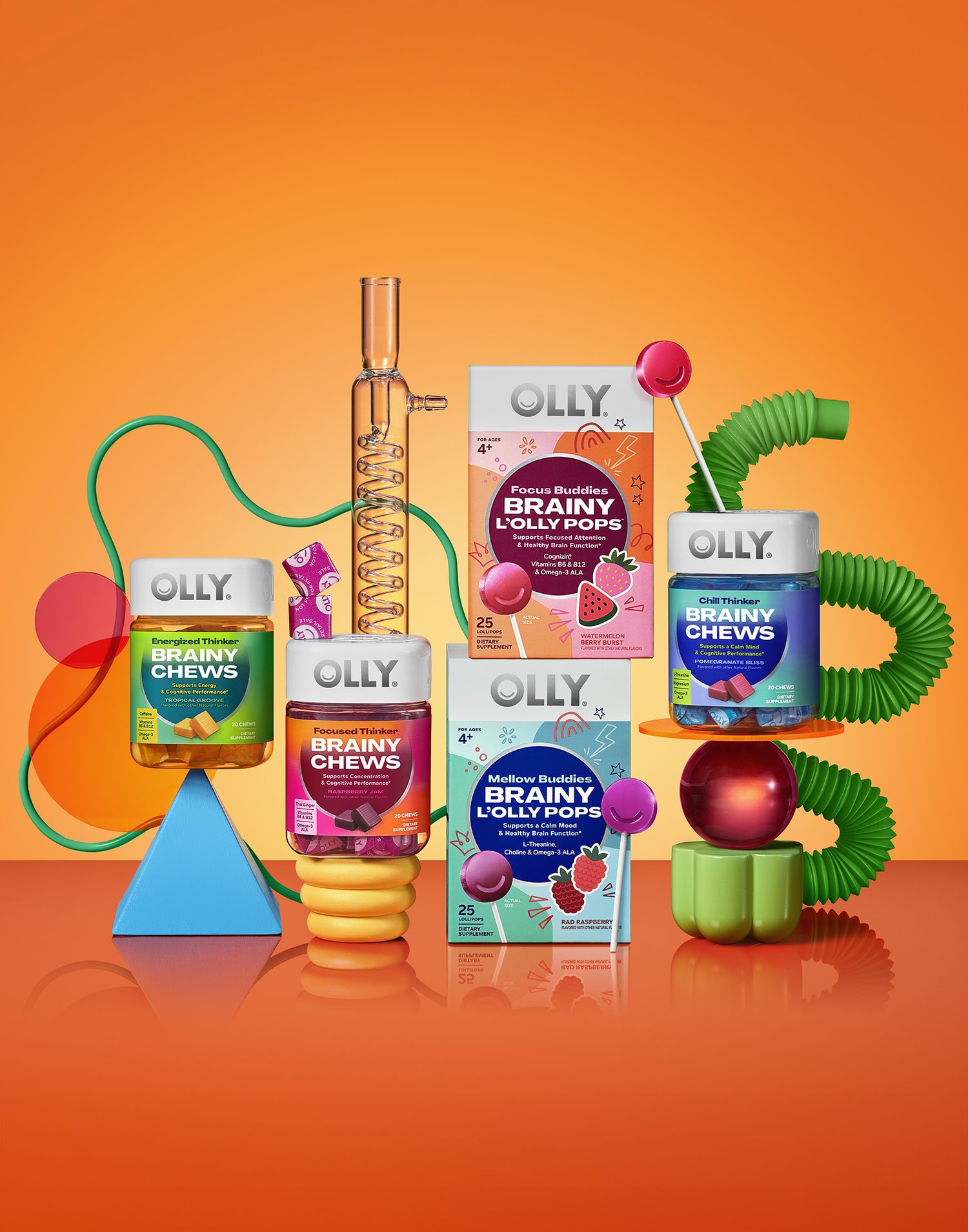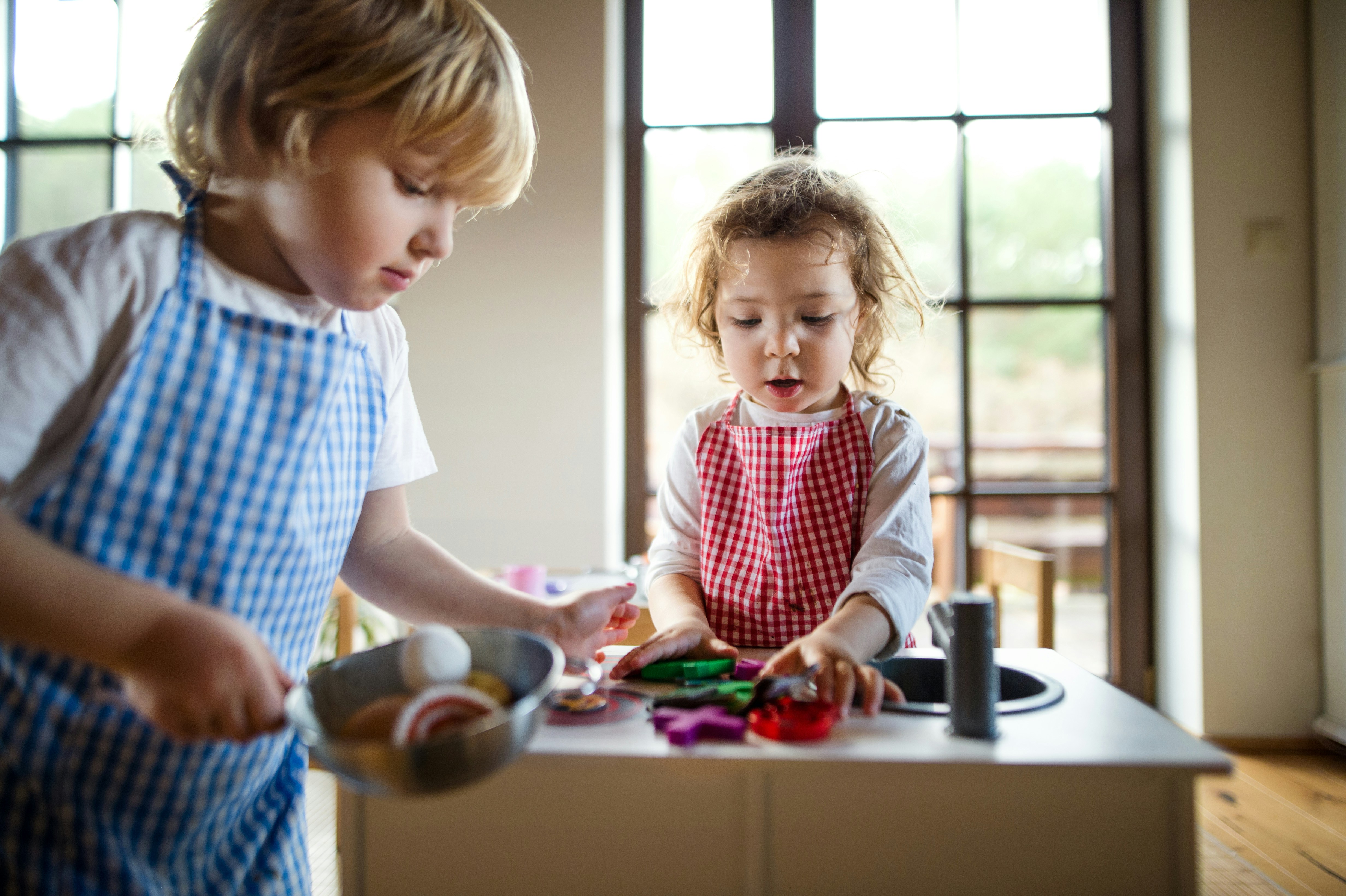Kids' food has always promised a better future: calcium for bones, protein for growth, vitamin C for immunity. A physical head start.
But today, kids nutrition is shifting, being reimagined not just as fuel for physical growth, but as a tool for shaping who a child becomes.
Kids food is being reframed as a source of cognitive edge, emotional resilience, and social fluency, ushering in a new era of developmental nutrition about setting kids up to thrive.
Brands are taking notice. Cerebelly, created by a neurosurgeon, markets neurodevelopmental support. Kiddiwinks promotes brain health through gut-friendly plant-based milks. In 2024, OLLY debuted a ‘Brainy’ range, made to address memory, creativity, motivation, and attention.

The science is increasingly clear: the early years are critical for brain development, and nutrition plays a fundamental role.
For many parents, food has become a quiet enabler of their modern aspirations. In a world of overstimulation and concern for children’s mental health, this is another way to support future success.
For brands, this opens a powerful opportunity. It blends science, parenting ambition, and emotional relevance to define a new category.
But as this space grows, a deeper question emerges that we’re not asking loudly enough.
In chasing the promise of early cognitive development, are we turning food from an act of care into another measure of performance?

The Performance Trap
Parents want to support their children’s development and food is starting to promise exactly that. However, when every bite carries a benefit, ‘supporting development’ can easily become ‘enhancing performance’.
This is where we risk crossing a line, because they are not the same.
Development supports who children are.
Performance asks them to become something more.
In a world already full of pressure, that distinction matters.
We risk building a world where childhood becomes a project and food becomes a means to extract productivity.
We’ve already seen this narrative play out in adult wellness. Calm, clarity, and focus have become demands rather than desires, and even rest is something to optimise. Health brands like Virgin Active now actively campaign against the rise of toxic wellness.
For children, when identities are still forming, that pressure has deeper consequences.
“[Gen Alpha] are the first generation to benefit from revolutions in gut health and are growing up with a focus on functional foods… This generation will likely have a deeper understanding of the connection between diet and overall wellbeing.” (Source: Mintel, 2024)
With too much focus on function at this age, food stops being intuitive and meals become moments of measurement, not joy. While children can’t name the pressure, they still feel it.
And it doesn’t just affect them.
Smarter nutrition should empower parents. In practice, it often overwhelms. Time-starved families, juggling overstimulation, picky eaters, and tight budgets, face a food system dominated by ultra-processed options that may disrupt mood and behaviour. Ingredients like Red 40 dye are under scrutiny for potential links to hyperactivity. Meanwhile beneficial nutrients remain costly, confusing, or inaccessible (Choline, Gut-brain axis, nootropics). For many families, the reality is still corner-shop snacks and five-minute dinners.
Knowledge of better choices is growing, but access remains wildly unequal, adding more pressure, stress and guilt than support.
That’s the paradox: food designed to support emotional wellbeing may end up undermining it.

Remembering what food has always been about
If we want to move forward, we need to reassess the opportunity.
Parents aren’t trying to raise super-kids, they’re trying to raise resilient, well-rounded and, ultimately, happy humans. The value lies in giving them the best start in life.
Food is one of the earliest, most consistent ways children engage with care, culture, connection and creativity, from family dinners to shared lunchboxes. Brands tapping into this exciting space, must navigate the line between becoming a performance tool and a foundation for well-rounded human development. To do this, they need to embrace the bigger picture of how food supports developing mental, emotional, and social health. There are three distinct layers:
1. The Science
Active ingredients and systems that support the developing mind.
2. The Relationship
A healthy relationship with eating, nurtured early.
3. The Rituals
Moments that foster connection, resilience, and joy at this care-free time in life.
The Opportunity, and responsibility, for Brands:
Understanding the true power of smart, social and emotional food.
By bringing these layers together, the emerging science can complement the formative role good food has always played in young lives.
There’s nothing wrong with ‘focus’ or ‘calm’ on-pack, but they shouldn’t just signal function or fuel. Food is how we find joy, show love, and build memory.
From supplements to ready meals, the approach to this will vary. However, the brands that succeed won’t just promise more outcomes, they’ll offer simple, effective choices that serve real-world families, grounded in care. This is the real work of children’s nutrition: not just supporting development, but nourishing the lived experience of growing up.
